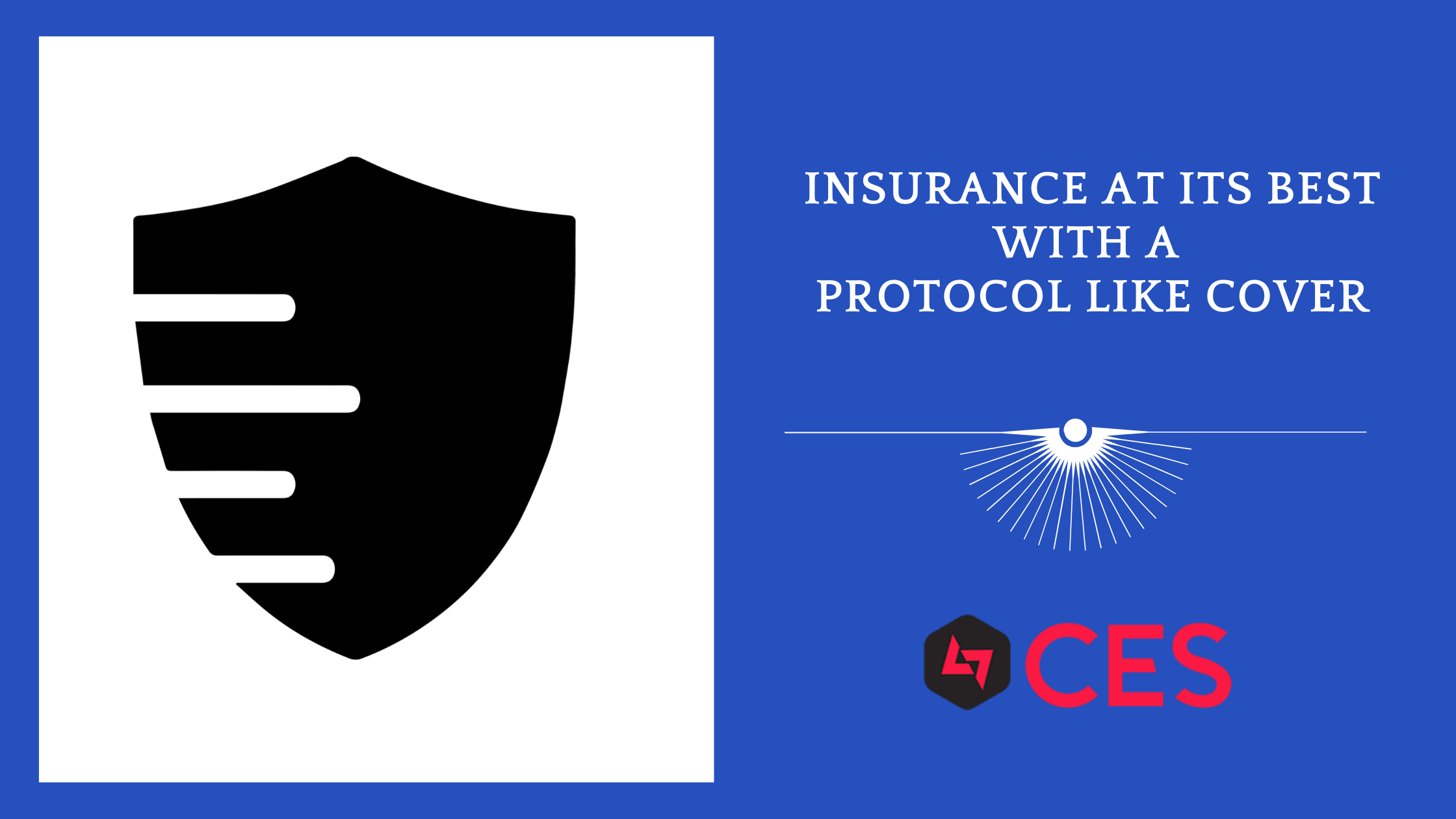We live in a fast-paced world, striving to give our best every time. But, it is not possible to always live at a hush-hush pace. We need rest and peace for our soul and mind. Remember: Healthy mind and healthy body is the key to a healthy life. But then, of course, money matters the most. And, you want that key to your money, where you can lock them and relax. Does anything like this exist? Yes, it does. Cryptocurrency Exchange Scripts’ Defi protocol like Cover is that key that you have been eager to meet.
Now, The Question Arises. What Is Cover Protocol?
Cover Protocol is a blockchain-based P2P coverage market for decentralized finance sectors. It protects DeFi users against risks due to smart contract errors. With the help of fungible tokens and its mechanism of letting the market itself set coverage prices, it has transferred itself from the need to rely on a bonding curve to determine the cost of being insured.
Let’s Dig Deeper
How can our DeFi protocol, like Cover Protocol, help your DeFi users? Our protocol itself is the solution. We develop a kind of protocol that incentivizes DeFi users and developers to provide decentralized insurance. It allows you to buy “insurance” for products like Yearn.Finance, Aave, and other systems in the DeFi ecosystem. It ensures the networks and users, a critical missing link between DeFi and conventional finance.
Let’s Examine How Our Protocol Like Cover Handles Insurance In The Decentralized World
Fungible Tokens:
When users interact with the smart contract, fungible tokens can be minted on the platform. Like Cover, our protocol helps you in covering the protocol, the type of collateral needed, the amount of collateral, and insurance length.
Once deposits are completed into the contract, two types of tokens can be created. They are:
- CLAIM
- NOCLAIM
A ratio of 1:1 is maintained between the collateral and the tokens. The above two minted tokens work in precisely opposite directions. The CLAIM token enables its holders to receive a payout once a contention has been approved. Whereas, NOCLAIM token enables its holders to redeem the collateral when a filed petition fails to go through or the token expires after nothing notable has happened to that particular project within the expiration date. Each CLAIM and NOCLAIM token refer to only one project and provide unique information.
Types Of Participants In Our Defi Protocol Like Cover
- Market Makers: They offer liquidity and can hold both types of minted tokens. They receive awards from fees charged in the respective liquidity pools. Fees charged are usually in between 2-3%. Note: they liquidate either of the tokens at their will.
- Coverage Providers: They are insurance providers and only hold NOCLAIM coins. They receive both types of tokens when they deposit collateral in the system. They can sell CLAIM tokens for a premium and retain NOCLAIM coins. Fees charged on the NOCLAIM pool act as incentives. We encourage teams seeking insurance for their platform to be insurers to boost trust and confidence in their offering. In the Claim payout, they would lose all their funds since NOCLAIM tokens would become worthless.
- Insurance Seekers: They hold claim coins and insure their deposited funds. Apart from being covered, they are rewarded for offering liquidity in the CLAIM pool.
How Does Our Defi Protocol Like Cover, Handle Claims?
In the field of insurance-focused products, allegations and claims are expected. Our network is offering a petition filing window of 72 hours after an incident occurs. Although our protocol, like Cover, is a decentralized platform and handles contentions in four simplified steps.
- A case is brought against an insured product after the fees are paid, which covers the claim file fee. To keep track of all spam attacks and malicious folks at a distance, our network enhances the cost each time a new allegation is filed against an insured product.
- The second phase involves a vote from $COVER holders. If the community unanimously votes in favor of the submission, then the third step needs to be followed.
- The Claim Validity Committee (CVC) or auditors review the petitions to determine whether it meets all the requirements. The CVC also deliberates on the payout percentage, which can be upto 100%.
Important Note:
All the five auditors review a single contention, and half of them must vote in favor of it to be accepted. The last step is for $COVER holders to redeem their payout for the accepted allegation.
If the case is rejected, it can be refilled as a Forced Claim during the community voting phase, which is expensive to handle.
What Is $Cover?
$COVER is the native currency of Cover Protocol. It acts as a governance token and offers access to the Balancer pools. Moreover, it allows permit holders to participate in the claims management subsections.
System users use COVER tokens to offer liquidity on SushiSwap by integrating with the ETH-COVER liquidity pool. By depositing the token in the pools, a door is opened to receive a percentage of traders’ fees plus an additional $COVER through staking the LPs on the Cover protocol.
Compensation Plan
All the $COVER-like token holders and the /ETH pair’s liquidity providers could be compensated, even when they have their tokens on a centralized exchange. But, unclaimed rewards are impossible to withdraw as the minting rights from the blacksmith have been removed.
Conclusion
The DeFi smart contracts are experiencing many hacks and exploits; therefore, Cryptocurrency Exchange Script jumps into this. We are here to help you by offering the critical Cover like protocol to not to be worried anymore. Moreover, we have a team of developers that believe in protocol security, thus, benefitting the whole DeFi space. Contact us at the earliest and get insured today.
